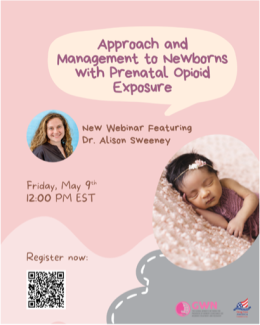Approach and Management to Newborns with Prenatal Opioid Exposure

On May 9th | 🕛 12 PM EST (Washington DC time) Find your local time zone using the https://dateful.com/time-zone-converter
Join Dr. Alison Sweeney of UNC Chapel Hill for an insightful session on:
👶 Recognizing signs and symptoms of opioid...


